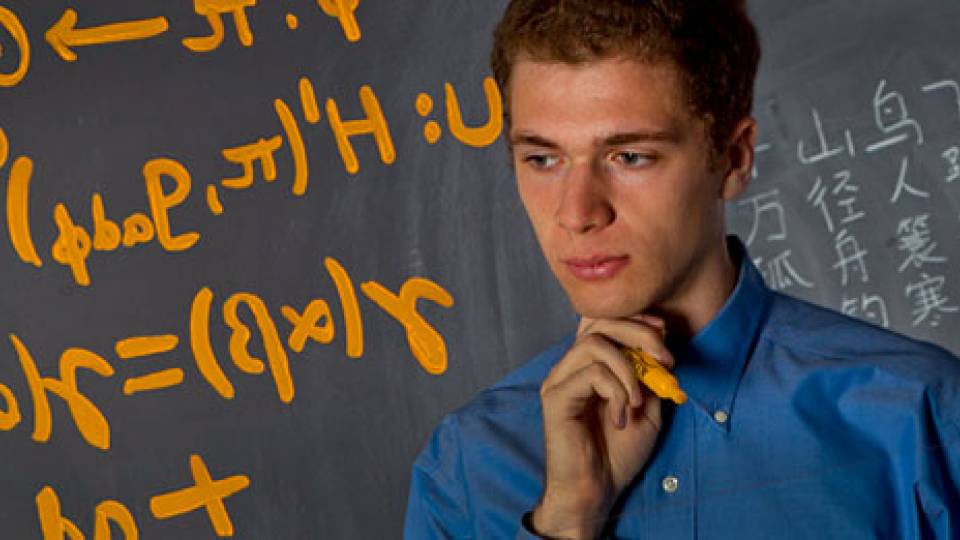Students from Princeton and Tsinghua University in Beijing recently competed on campus in a Chinese language debate that will be featured in a China Central Television (CCTV) program to be seen by millions of viewers in China.
The debate between the Tsinghua students and junior David Cohen-Tanugi and sophomores Jonathan Kent and Tamar Walker was held Sept. 25 in Jones Hall. It was recorded by a CCTV film crew documenting the Tsinghua team's debates at Princeton, Columbia, Yale and Harvard, among other schools around the world.
The international debates were organized by CCTV, the state television network in China, and the Tsinghua team's journey will be the focus of a documentary featuring interviews with the Princeton students and showing campus life at Princeton and other competing schools. An airdate for the documentary has not been announced.
The Princeton students were selected and trained for the debate by Professor of East Asian Studies Chih-p'ing Chou, who also is director of the Princeton in Beijing language study program and the East Asian Linguistics Project, as well as lecturers Zheng Qu and Yan Zhuang.
"All three of our students did extremely well, and the team from Tsinghua University was very impressed by their command of the Chinese language," Chou said. "I believe that students are the best representatives of the University, and I'm confident that the Princeton debate team will impress Chinese television viewers with their Chinese language and keen analytical skills."

For the debate, the Princeton students were asked to take the affirmative position on the question of whether gambling should be legalized throughout the United States. The debate followed a three-part format: Walker made an opening statement, all three students offered an extemporaneous rebuttal of the Chinese team's arguments and Cohen-Tanugi made a closing statement. Each student also was asked to showcase a talent, with Kent performing a traditional Chinese comedic performance called Xiangsheng, Cohen-Tanugi writing calligraphy and Walker singing a Chinese song.
"We are constantly looking for new opportunities for our students to improve their Chinese proficiency and fluency," Chou said. "The debate encouraged them to use Chinese creatively and in a real-life situation."
In a report issued after the competition, debate organizers said the students' language proficiency made for an engaging debate. A translated version of the report said: "The students' exceptional performance cannot be separated from the careful and focused instruction that is provided to Princeton students."
Cohen-Tanugi, who is fluent in English, French and German and also is studying Spanish, said the debate was a unique opportunity to hone his Chinese language skills. The physics major said one of the reasons he came to Princeton from his native France was the University's Department of East Asian Studies and Chinese language instruction.
"The University's instruction of Mandarin is more than just intensive," he said. "It's also designed in an extremely efficient way, which enables students to learn very quickly."
Even with this instruction, however, Cohen-Tanugi said participating in the debate was much different than using the language conversationally.
"Surprisingly, there is a lot of memorizing that goes into Chinese debate competitions," he said. "Whereas speaking Chinese conversationally is naturally more spontaneous and unrestrained, competing in a Chinese language debate seems to be a time of strict adherence to an official position and of formal sentence structures."
Although Yale was selected by debate judges as the winning U.S. team, which means its debaters will travel to China to compete in a final round with students from Tsinghua and the other winning international teams, the Princeton students said participating in the debate and CCTV documentary were valuable experiences.
"I hope that the debate broadcast will show Chinese audiences the growing popularity of Chinese language learning in the United States," Kent said. "The program may also be many Chinese television viewers' first introduction to Princeton University, and it would be gratifying if our debate increases awareness about Princeton in mainland China."





